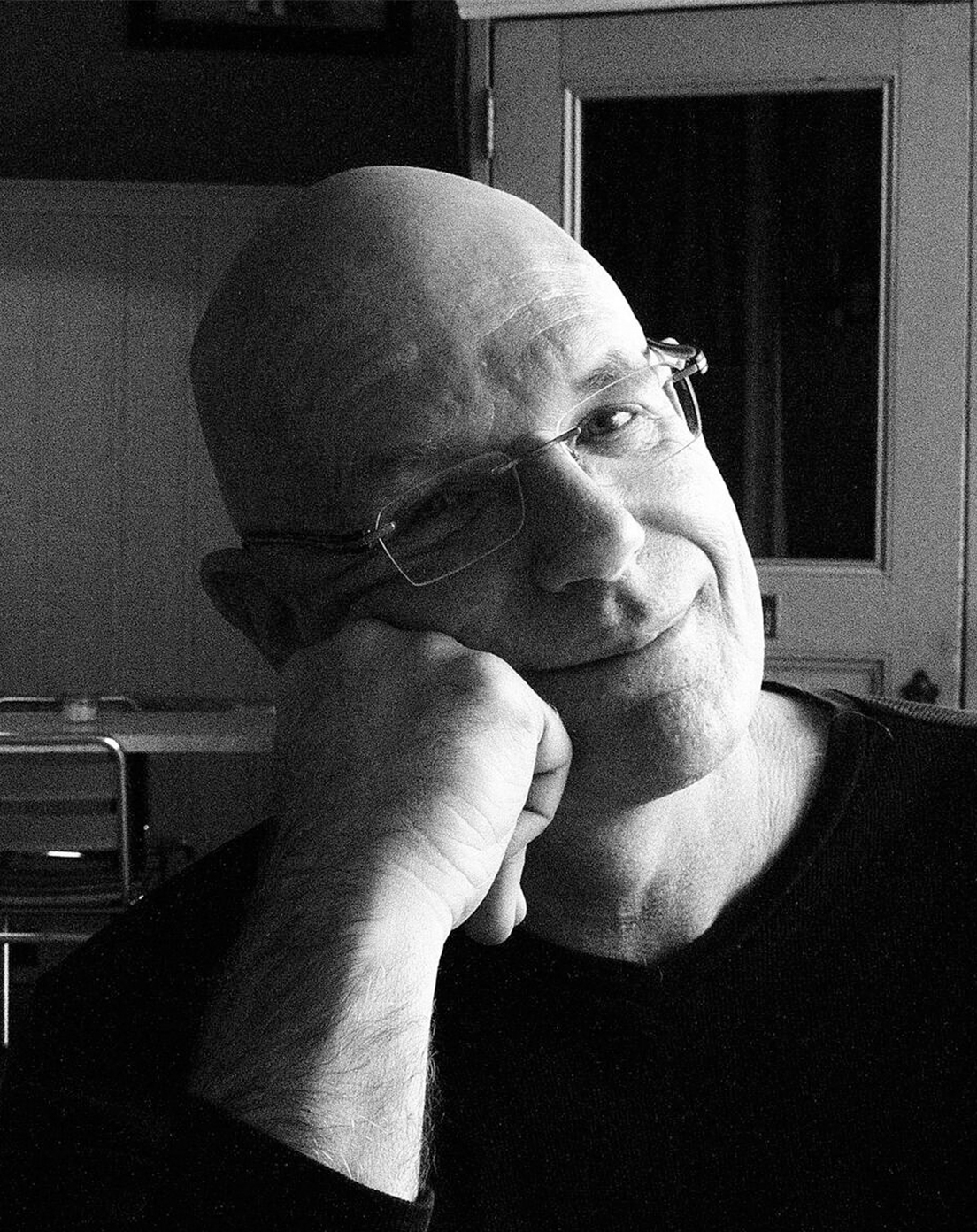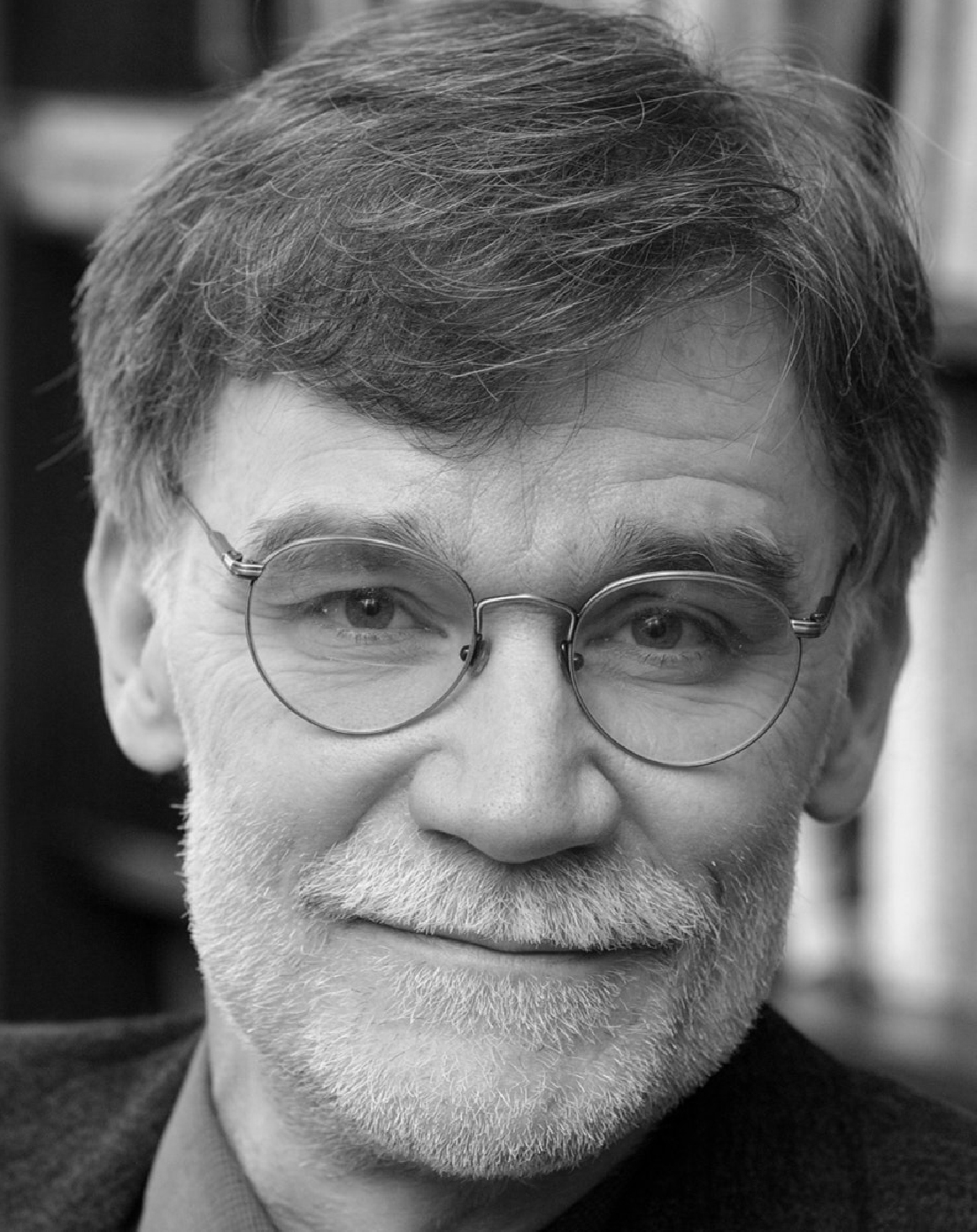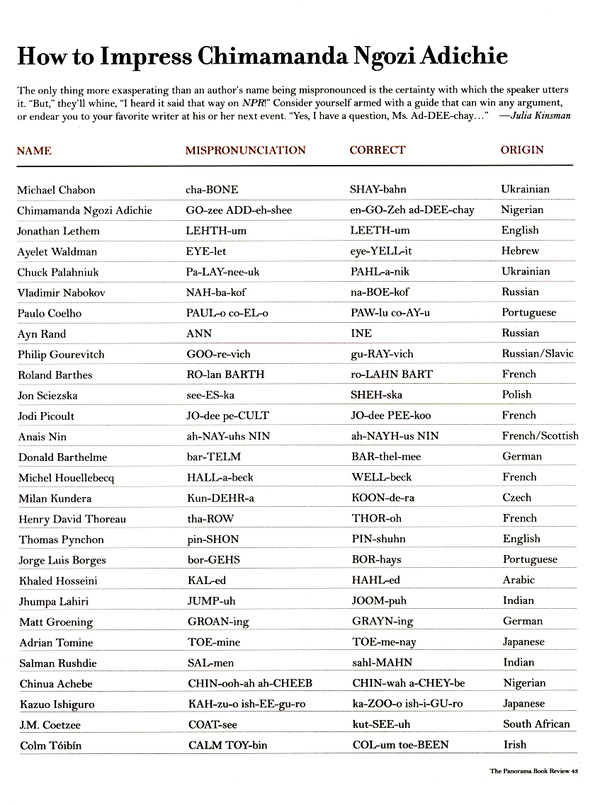We keep on telling you how terrific 2012 is shaping up for Junot Diaz and the accolades keep coming. Today, he and fellow Anisfield-Wolf award winner Louise Erdrich were named as 2012 National Book Awards finalists.
Tag: winners
Sometimes we see a longer video on YouTube and we consider passing on promoting it here because honestly, who wants to watch a 40+ minute video? People generally don’t have that kind of time. But we really like this video of 2003 winner Stephen L. Carter at the 2012 National Book Festival presented by the Library of Congress. Just from the introduction, we’re reminded that this guy is pretty spectacular.
Check out the video (just pieces of it – we know you’re busy!) and let us know if you’ve read his latest book, The Impeachment of Abraham Lincoln.
1943 winner Zora Neale Hurston left behind an incredible legacy. One of her greatest gifts, Their Eyes Were Watching God, celebrates its 75th anniversary this year. In honor of her achievement, Cleveland State University is hosting a four-day conference to recognize her contribution to the literary world.
From the website:
The Watching God and Reading Hurston conference will commemorate the 75th anniversary of the publication of Their Eyes Were Watching God while encouraging participants to consider Hurston’s contributions to world culture, especially as those contributions relate to the study of religion and spirituality in the history of Africa and the Diaspora. [More information]
In the short video above, get a peek at the type of woman Zora Neale Hurston was in the biography, “Jump at the Sun.” For more information, visit the link.
We know how much of an honor it is to be able to dedicate a night of our lives to the power of books. Not just any books, but the kind of books that make you think, that give you new information to digest, that force you to see the world a bit differently once you finish reading the last sentence.
This year’s ceremony was a must-see, and if you weren’t able to get tickets (they sold out in record time this year), if you weren’t able to watch it as it was broadcast live here at anisfield-wolf.org or at ideastream.org, you are in luck! This year there will be a number of additional chances to watch the broadcast on TV. Check out the dates and times below to see when you might be able to watch the ceremony in full on the Ohio Channel (statewide across Ohio) or on WVIZ/PBS Ohio (digital subchannel).
WVIZ/PBS Ohio can be viewed over the air on channel 25.2, on Time Warner on channel 990, and on Cox channel 201. Other channel locations for other systems available at the Ideastream channel guide.
Sunday, September 23
9:00 a.m.
5:00 p.m.
Monday, September 24
1:00 a.m.
Friday, September 28
2:30 p.m.
10:30 p.m.
Saturday, September 29
6:30 a.m.
Saturday, October 20
12:00 p.m.
8:00 p.m.
Sunday, October 21
4:00 a.m.
Have we worn you down? Has our incessant posting about Zadie Smith’s latest novel sparked just enough curiosity for you to at least pick up the book next week and read a few pages in the bookstore? You could do that, or you could watch the video above and hear Zadie Smith read it for you.
We won’t spend too much time on an introduction today; let’s get right to the meaty stuff. Recently, our 2012 winners all had a chance to speak with Dred-Scott Keyes on the Public Radio Exchange to discuss their books and the deeper themes within. Take a listen to David W. Blight and Esi Edugyan in part one, and David Livingstone Smith and Arnold Rampersad in part two:
1997 winner Jamaica Kincaid gives a commencement address at Grinnell College with some advice that might not be so common. She tells graduates that sometimes, it is necessary to bite the hand that feeds you. Watch the video starting at the 5:40 mark to see what she means.
Penguin Press, Zadie Smith’s publisher, is offering readers a sneak peek at her latest novel over on its Facebook page. We’re not sure how long it will be available, so if you’re interested, go read it today!
The reviews for NW are already trickling in and we really like this write-up from the Washington Post, even if it’s not the typical glowing four-star review:
The Washington Post’s Ron Charles writes:
“You either submit to Smith’s eclectic style or you set this book aside in frustration. At times, reading “NW” is like running past a fence, catching only strips of light from the scene on the other side. Smith makes no accommodation for the distracted reader — or even the reader who demands a clear itinerary. But if you’re willing to let it work on you, to hear all these voices and allow the details to come into focus when Smith wants them to, you’ll be privy to an extraordinary vision of our age.”
Do reviews like this make you want to read it more or less? Will you be picking up a copy of “NW” when it hits bookshelves in September?
As we are furiously preparing for our awards ceremony in a few weeks, we found this video, taped for our 70th anniversary. In it, James McBride (The Color of Water), Adrian Nicole LeBlanc (Random Family) and jury chair Henry Louis Gates, among others, share their appreciation for an award that highlights the importance of talking about race. Watch the video above and let us know in the comments what you think.
“Writing is almost a place of dreams for me, and I don’t have to give up anything to do it.” ~Walter Mosley
In this video from BigThink, 1998 winner Walter Mosley shares a bit about his writing career and aspirations (did he always know he would be a bestselling author?) and his daily writing routine.
2003 winner Stephen L. Carter grants an interview with Glenn Reynolds, of InstaVision to talk about his latest book, The Impeachment of Abraham Lincoln and whether he thinks America’s obsession with Lincoln has anything to do with the current political climate.
Each year we recognize several authors for their contributions to the ongoing conversation about race and diversity in the world. In September, each of our winners makes the trek to Cleveland for the awards ceremony, for our audience to meet these esteemed authors in person and to hear them read their works. It’s a hot ticket in town but does the public know much about the ceremony itself? We talked to Mary Louise Hahn, consultant to Cleveland Foundation for the Anisfield-Wolf Book Awards and she gave us (and you!) insight into the process:
1. How long does it take for us to prep for the awards ceremony every year?
It takes us about three months to work out all the logistics, with several colleagues, PlayhouseSquare, ideastream and Colortone professionals involved.
2. How many AW winners are there?
211 including Lifetime Achievement winners (a tradition started by jury chair Henry Louis Gates, Jr., which goes back to 1996.) ·
3. Which author has flown the farthest distance to make it for the awards ceremony?
Probably Nam Le, flying from Australia via London and New York to Cleveland.
4. How many books does the jury read before making their selections on who is the winner?
Because our jury is so extraordinarily well read, quite a few of the 200+ publically nominated books are ones with which they are already familiar. By the end of the selection process, they will have all zeroed in on approximately 15-20 books and critiqued them together. ·
5. What is the largest attendance we’ve had the awards ceremony?
We had 950 people at Severance Hall for the 75th anniversary. Last year, our first at the Ohio Theatre in Playhouse Square, we had an attendance of 850. Previous to Severance, our largest attendance was 640—the maximum capacity of the Bolton Theatre at the Cleveland Playhouse. Our last three years in the Bolton, our ceremonies had only a few empty seats, despite the fact, that the tickets were free.
Some of the world’s greatest historians—David W. Blight, Henry Louis Gates, Taylor Branch, etc.—are also Anisfield-Wolf award winners. They know their subjects backward and forward, being able to recall dates, times, places with astonishing accuracy, clarity and insight. They make it possible for us to get to know some of history’s most important leaders in a way that is completely accessible.
That is what David W. Blight aims to do with his upcoming book, his third focusing on the life of Frederick Douglass, who he claims is the “most important and famous African American leader in the nineteenth century.” Check out the above video to learn more about the man who escaped slavery to become President Abraham.
We are roughly a month away from the 2012 Anisfield-Wolf ceremony and is customary, we are alerting fans to several opportunities to meet our 2012 winners.
Book Signing with David Livingstone Smith
Cuyahoga County Public Library, Beachwood Branch (In the Meeting Room)
25501 Shaker Boulevard
Beachwood, Ohio 44122-2398
Corner of Richmond & Shaker Boulevard
Wednesday, September 12, 2012
7:00 PM – 8:30 PM
Registration is recommended. Click here to register.
Lecture with David W. Blight
Baker-Nord Center for the Humanities (Clark Hall Room 309)
Wednesday, September 12, 2012
4:30 PM – 5:30 PM
This event is free and open to the public.
Registration is recommended. Click here to register.
Anytime – and we do mean anytime – there is a new Toni Morrison interview or book or appearance, we pay attention. Not just because she is a 1988 Anisfield-Wolf winner, but because she is a literary treasure. She is 81 now, having spent roughly half her life as an author of note and with is comes the freedom and space to say exactly how she feels about any given topic.
She recently sat with a writer from the Daily Telegraph for an in-depth interview in advance of her latest work, a play, which opened in London this month. In it, she collaborates with director Peter Sellars and Rokia Traore to retell the story of “Othello,” one of Shakespeare’s most-known works, this time giving more depth to Desdemona, Othello’s lover and wife.
In the incredibly rich interview, Morrison talks candidly about a variety of subjects. We pulled some of the best quotes:
On her son’s death:
“People speak to me about my son – ‘I’m so sorry for you’ – but no one says, ‘I loved him so much.’ I was busy in grief, which I don’t expect to stop. Suddenly realising that the last thing my son would want was for me to be very self-involved and narcissistic and self-stroking. It stopped me from writing. Which doesn’t mean you stop feeling the absence. It was being willing to think about it in a way that was not self-serving.”
On why she wanted to take on Shakespeare:
“Black classically trained actors love the role because it’s one of the few times that they are the stars. So the same old version gets repeated. And I didn’t find justification for that conventional view in Othello. I was interested in a different rendering of her.”
On where she considers home:
“I live in places that I love. And I’d hate to lose them. The house on the river I’ve been in since the Seventies. But home is an idea rather than a place. It’s where you feel safe. Where you’re among people who are kind to you – they’re not after you; they don’t have to like you – but they’ll not hurt you. And if you’re in trouble they’ll help you…”
The whole interview is worth a read – we think you’ll find it one of the highlights of your day.
The press keeps coming for Zadie Smith, as her latest book, NW, will be hitting bookshelves in September. An excerpt from her latest book appeared in The New Yorker recently and Smith gave an open and honest interview about her writing process and her desire to have characters that are diverse. But there was one quote in particular that made us pause:
Every time I write a sentence I’m thinking not only of the people I ended up in college with but my siblings, my family, my school friends, the people from my neighborhood. I’ve come to realize that this is an advantage, really: it keeps you on your toes.
And it seems clear to me that these little varietals of voice and lifestyle (bad word, but I can’t think of another) are fundamentally significant. They’re not just decoration on top of a life; they’re the filter through which we come to understand the world.
Is it clear now why we awarded Ms. Smith the 2006 award for fiction? This quote clearly touches upon all the elements of the Anisfield-Wolf Awards. We appreciate the differences in cultures because they are truly what makes the world such a rich place to be.
Read the entire interview here and follow Zadie Smith on Facebook for more updates on her work.
For someone as storied as Arnold Rampersad, sometimes the best words of praise come not from awards jurors or book critics, but from colleagues who have worked side by side with you for years. Shelly Fisher Fiskin, who co-edited Oxford University Press’ Race and American Culture series with Rampersad, wrote that there are few people more deserving of an award than her longtime colleague:
Fiskin writes:
An extraordinarily elegant writer, a meticulous researcher, and a scholar gifted with the ability to focus on what matters most about any subject that he tackles, Arnold Rampersad richly deserves this honor.
His biographies and his literary scholarship have had an enormous impact on our understanding of American culture, illuminating issues of race and racism in America in groundbreaking, crucial ways. He has been a role model for generations of scholars in American Studies, English, and African American Studies. I congratulate the Anisfield-Wolf jury for recognizing his important contributions to the cultural conversation with this award.
We couldn’t have said it better ourselves. Congratulations again to an amazing writer.
We’re sticklers for learning how to pronounce all of our winners’ names. We don’t pat ourselves on the back for this; after all, it is their given name and making the effort to greet someone as they are customarily called is simply good manners. We can admit that some names are harder than others, based on the complexity of the ratio of vowels to consonants, but at rate, there might be some names that look disturbingly easy, but in fact will trip you up. Check out some of the names you think you’ve nailed, but really could use a lesson or two:
Arnold Rampersad, our 2012 Anisfield-Wolf winner, has a special tie to the Cleveland area, where our awards are hosted every year. As one of the nation’s definitive biographers, he has covered noted Cleveland resident Langston Hughes in detail, publishing two volumes of The Life of Langston Hughes, served as editor of Collected Poems of Langston Hughes and Poetry for Young People: Langston Hughes. We are looking forward to his remarks at the 2012 ceremony in September!
Here’s a few tidbits about our 2012 lifetime achievement winner that you can chew on:
Rampersad is a 2010 National Humanities Medal winner, along with Anisfield-Wolf jury member Joyce Carol Oates. The committee honored him for his skills as a gifted biographer and literary critic.
Rampersad also joins the long list of Anisfield-Wolf winners who have also won a MacArthur “Genius” grant.
He won the 1987 Anisfield-Wolf award for nonfiction, for his work, The Life of Langston Hughes.
He’s been featured at Authors@Google, the web giant’s program that allows for some of the world’s most innovative authors to share their work with a greater audience, video above. We welcome him to the Anisfield-Wolf family and look forward to the ceremony in September!
Anne-Marie Slaughter’s “Why Women Can’t Have It All” article has re-ignited the conversation about working mothers and their quest to obtain balance in all areas of their lives. Some argue that Slaughter’s perspective (as a former State Department employee turned tenured Princeton professor) reeks of privilege, while others simply admit that she makes valid points about the difficulty of proving yourself both on the job and in your home.
The Wall Street Journal caught up with 2006 Anisfield-Wolf winner Zadie Smith at the Book Expo and talked to her a bit about how she sees her career these days, as she has a two-and-a-half year old daughter and an upcoming book to promote. How does she balance the two?
Smith said:
It’s not always easy but I think one way you can make it easier is just doing the essential things and nothing else. I’m not in a great passion to run around the country for three weeks, you know? I’d rather be at home.
But actually writing fits fairly well with motherhood. I’m in the house all the time, which helps. You can set your hours. I suppose the hard thing for a child is the sense that your mother is often thinking about something else. In the downtime between novels you have to demonstrate that you’re also thinking of your family. I’m trying to do it now.
Read the rest of the interview here.


